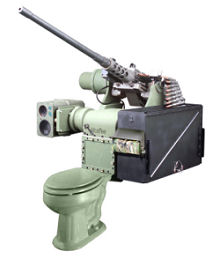 Earlier this month, the United States Court of Appeals for the D.C. Circuit announced that it was dismissing the appeal of machine gun manufacturer and distributor U.S. Ordnance in its lawsuit against the Directorate of Defense Trade Controls (“DDTC”). The Court of Appeals dismissed the appeal because DDTC had resumed processing U.S. Ordnance’s pending export licenses. This certainly raised a few eyebrows since the trial court had sided with DDTC and upheld the agency’s decision to deny U.S. Ordnance’s pending license applications. So why did DDTC cave after winning in the lower court?
Earlier this month, the United States Court of Appeals for the D.C. Circuit announced that it was dismissing the appeal of machine gun manufacturer and distributor U.S. Ordnance in its lawsuit against the Directorate of Defense Trade Controls (“DDTC”). The Court of Appeals dismissed the appeal because DDTC had resumed processing U.S. Ordnance’s pending export licenses. This certainly raised a few eyebrows since the trial court had sided with DDTC and upheld the agency’s decision to deny U.S. Ordnance’s pending license applications. So why did DDTC cave after winning in the lower court?
The reason, in my view at least, is that the decision of the District Court was a mess. Basically the Court defended DDTC’s actions because the father of the owner of U.S. Ordnace had been indicted, but not convicted, of crimes arising out of allegedly illegal firearms imports. That’s right — the father.
According to the trial court:
In May 2004, however, the Department learned that plaintiff allegedly was associated with an individual named Curtis Lynn Debord (“Debord Sr.â€), who had been indicted in 1997 for violations of § 2778 of the AECA, and therefore was considered as being ineligible to engage in the export of arms under the AECA’s implementing regulations – International Traffic in Arms Regulations (“ITARâ€). See United States v. Debord, No. 97-CR-239 (N.D. Cal.) (charging Debord Senior with smuggling arms into the United States, dealing in firearms without a license, entry by false statements, conspiracy, making false statements and witness tampering).
In a footnote, the Court noted that Debord Sr. was the father of “Curtis Lee Debord, who is the President, Treasurer, Secretary and sole director and owner of” U.S. Ordnance.
When the trial judge says that U.S. Ordnance was ineligible for DDTC licenses because the father of the owner of the company had been indicted for firearms import violations, you have to wonder whether anybody bothered to share a copy of the ITAR with the lower court. And if they did, whether it read it. Not only doesn’t the ITAR impose any family eligibility requirement but also the charges against Debord père don’t appear to be violations of the Arms Export Control Act or any of the other statutes singled out by ITAR section 120.27 as disqualifying. (Parts of section 2778 of the AECA do deal with certain imports of firearms but it’s not clear from the court’s description that these relatively narrow provisions were involved.)
But it gets worse. The trial court held that it had no jurisdiction over U.S. Ordnance’s case because the DDTC’s actions were matters of foreign policy committed to the agency’s discretion. That argument might make sense if U.S. Ordnance was challenging the decision of DDTC to adopt a rule that made license applicants ineligible for the sins of their fathers; it makes no sense where the argument was that the DDTC wasn’t following its own rules.
To be fair, the DDTC claimed that the father was, at least for a period, a senior official of U.S. Ordnance. If that was true and the indictment against Debord Sr. had charged crimes listed in section 120.27, then U.S. Ordnance would have been ineligible under section 120.1(c) and would have been required under section 126.13(a)(1) with any license applications. But this appears to have been contested by U.S. Ordnance and certainly wasn’t relied on by the trial court judge who felt it sufficient that the CEO of U.S. Ordnance was related to someone who had been indicted.

 Posted by
Posted by  Category:
Category: 

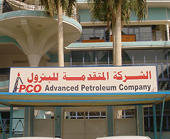 The Office of Foreign Assets Control (“OFAC”)
The Office of Foreign Assets Control (“OFAC”) 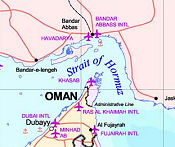 The Bureau of Industry and Security (“BIS”) published today in the Federal Register an
The Bureau of Industry and Security (“BIS”) published today in the Federal Register an 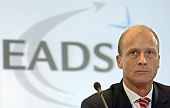 Last week, Dr. Thomas Enders, the CEO of the European Aeronautic Defense and Space Company (“EADS”) spoke at the
Last week, Dr. Thomas Enders, the CEO of the European Aeronautic Defense and Space Company (“EADS”) spoke at the 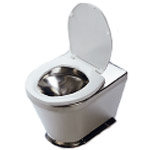 What do missiles and toilets have in common? Both are on the United States Munitions List.
What do missiles and toilets have in common? Both are on the United States Munitions List. 